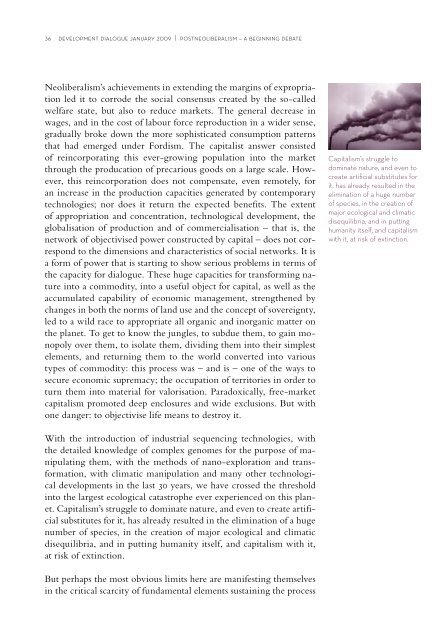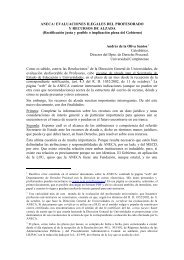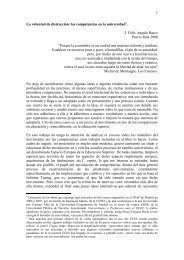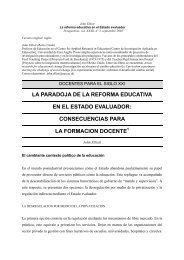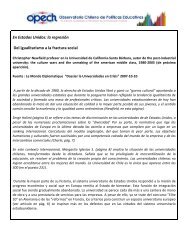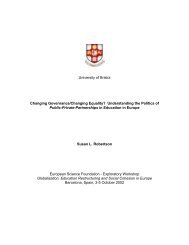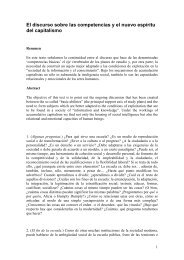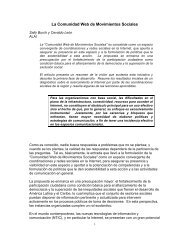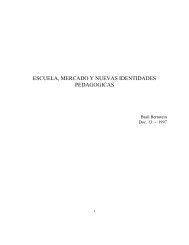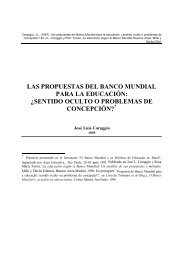no. 51 | january 2009
no. 51 | january 2009
no. 51 | january 2009
- No tags were found...
You also want an ePaper? Increase the reach of your titles
YUMPU automatically turns print PDFs into web optimized ePapers that Google loves.
36 development dialogue <strong>january</strong> <strong>2009</strong> | postneoliberalism – a beginning debateNeoliberalism’s achievements in extending the margins of expropriationled it to corrode the social consensus created by the so-calledwelfare state, but also to reduce markets. The general decrease inwages, and in the cost of labour force reproduction in a wider sense,gradually broke down the more sophisticated consumption patternsthat had emerged under Fordism. The capitalist answer consistedof reincorporating this ever-growing population into the marketthrough the producation of precarious goods on a large scale. However,this reincorporation does <strong>no</strong>t compensate, even remotely, foran increase in the production capacities generated by contemporarytech<strong>no</strong>logies; <strong>no</strong>r does it return the expected benefits. The extentof appropriation and concentration, tech<strong>no</strong>logical development, theglobalisation of production and of commercialisation – that is, thenetwork of objectivised power constructed by capital – does <strong>no</strong>t correspondto the dimensions and characteristics of social networks. It isa form of power that is starting to show serious problems in terms ofthe capacity for dialogue. These huge capacities for transforming natureinto a commodity, into a useful object for capital, as well as theaccumulated capability of eco<strong>no</strong>mic management, strengthened bychanges in both the <strong>no</strong>rms of land use and the concept of sovereignty,led to a wild race to appropriate all organic and i<strong>no</strong>rganic matter onthe planet. To get to k<strong>no</strong>w the jungles, to subdue them, to gain mo<strong>no</strong>polyover them, to isolate them, dividing them into their simplestelements, and returning them to the world converted into varioustypes of commodity: this process was – and is – one of the ways tosecure eco<strong>no</strong>mic supremacy; the occupation of territories in order toturn them into material for valorisation. Paradoxically, free-marketcapitalism promoted deep enclosures and wide exclusions. But withone danger: to objectivise life means to destroy it.Capitalism’s struggle todominate nature, and even tocreate artifi cial substitutes forit, has already resulted in theelimination of a huge numberof species, in the creation ofmajor ecological and climaticdisequilibria, and in puttinghumanity itself, and capitalismwith it, at risk of extinction.With the introduction of industrial sequencing tech<strong>no</strong>logies, withthe detailed k<strong>no</strong>wledge of complex ge<strong>no</strong>mes for the purpose of manipulatingthem, with the methods of na<strong>no</strong>-exploration and transformation,with climatic manipulation and many other tech<strong>no</strong>logicaldevelopments in the last 30 years, we have crossed the thresholdinto the largest ecological catastrophe ever experienced on this planet.Capitalism’s struggle to dominate nature, and even to create artificialsubstitutes for it, has already resulted in the elimination of a hugenumber of species, in the creation of major ecological and climaticdisequilibria, and in putting humanity itself, and capitalism with it,at risk of extinction.But perhaps the most obvious limits here are manifesting themselvesin the critical scarcity of fundamental elements sustaining the process


